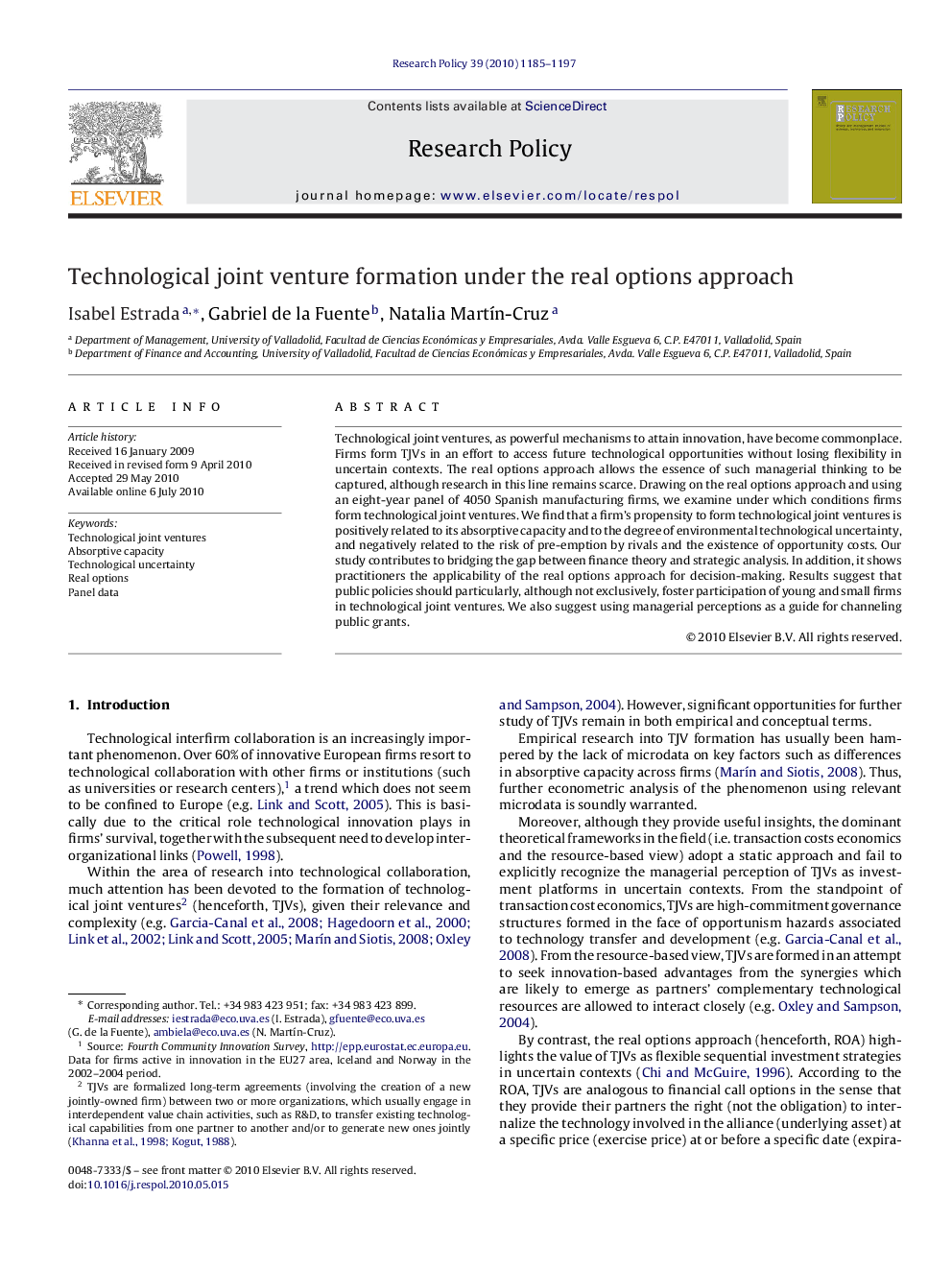| Article ID | Journal | Published Year | Pages | File Type |
|---|---|---|---|---|
| 984803 | Research Policy | 2010 | 13 Pages |
Technological joint ventures, as powerful mechanisms to attain innovation, have become commonplace. Firms form TJVs in an effort to access future technological opportunities without losing flexibility in uncertain contexts. The real options approach allows the essence of such managerial thinking to be captured, although research in this line remains scarce. Drawing on the real options approach and using an eight-year panel of 4050 Spanish manufacturing firms, we examine under which conditions firms form technological joint ventures. We find that a firm's propensity to form technological joint ventures is positively related to its absorptive capacity and to the degree of environmental technological uncertainty, and negatively related to the risk of pre-emption by rivals and the existence of opportunity costs. Our study contributes to bridging the gap between finance theory and strategic analysis. In addition, it shows practitioners the applicability of the real options approach for decision-making. Results suggest that public policies should particularly, although not exclusively, foster participation of young and small firms in technological joint ventures. We also suggest using managerial perceptions as a guide for channeling public grants.
